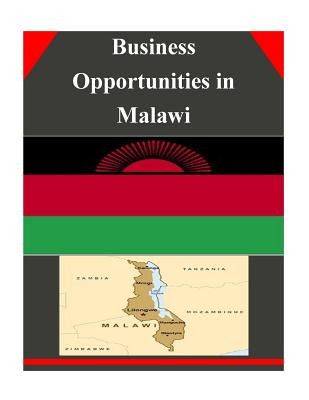
- We will send in 10–14 business days.
- Author: U S Department of Commerce
- Publisher: CreateSpace Independent Publishing Platform
- Year: 2014
- Pages: 60
- ISBN-10: 1502338238
- ISBN-13: 9781502338235
- Format: 21.6 x 28 x 0.3 cm, minkšti viršeliai
- Language: English
- SAVE -10% with code: EXTRA
Reviews
Description
Malawi is one of the poorest nations on earth, with nearly 16 million inhabitants and a population growth rate estimated at approximately 2.8%. Annual per capita Gross National Income (GNI) is less than a dollar a day.Agriculture is the major sector in Malawi, accounting for over 30% of GDP.The agricultural sector employs nearly half of those in formal employment, and directly or indirectly supports an estimated 85% of the population (including subsistence farming).Tobacco, tea, and sugar are Malawi's principal exports, together generating over 80% of export earnings.Malawi's industrial base is very small and developing slowly. There are a few plants/factories processing sugar, tea, tobacco, rubber, and other agro-products.Malawi has a relatively free investment environment, but poor infrastructure (particularly unreliable electricity and water), high transport costs, and bureaucratic hurdles tend to inhibit investors.Malawi has a fairly independent, albeit overburdened, judiciary that derives its procedures from English common law.Joyce Banda became President in April 2012 and launched major political, economic, and financial reforms to relieve the political and economic decline that Malawi experienced in of 2010 and 2011. Her government reversed unpopular laws, devalued and floated the exchange rate for the local currency, and introduced an automatic pricing system for petroleum products and utilities.In May 2014, Malawi held presidential, parliamentary, and local government elections. Despite logistical challenges on voting day, power transferred peacefully for the fourth time in the young democracy's history with the election of the Democratic People's Party's Peter Mutharika as Malawi's new president.
EXTRA 10 % discount with code: EXTRA
The promotion ends in 21d.10:38:16
The discount code is valid when purchasing from 10 €. Discounts do not stack.
- Author: U S Department of Commerce
- Publisher: CreateSpace Independent Publishing Platform
- Year: 2014
- Pages: 60
- ISBN-10: 1502338238
- ISBN-13: 9781502338235
- Format: 21.6 x 28 x 0.3 cm, minkšti viršeliai
- Language: English English
Malawi is one of the poorest nations on earth, with nearly 16 million inhabitants and a population growth rate estimated at approximately 2.8%. Annual per capita Gross National Income (GNI) is less than a dollar a day.Agriculture is the major sector in Malawi, accounting for over 30% of GDP.The agricultural sector employs nearly half of those in formal employment, and directly or indirectly supports an estimated 85% of the population (including subsistence farming).Tobacco, tea, and sugar are Malawi's principal exports, together generating over 80% of export earnings.Malawi's industrial base is very small and developing slowly. There are a few plants/factories processing sugar, tea, tobacco, rubber, and other agro-products.Malawi has a relatively free investment environment, but poor infrastructure (particularly unreliable electricity and water), high transport costs, and bureaucratic hurdles tend to inhibit investors.Malawi has a fairly independent, albeit overburdened, judiciary that derives its procedures from English common law.Joyce Banda became President in April 2012 and launched major political, economic, and financial reforms to relieve the political and economic decline that Malawi experienced in of 2010 and 2011. Her government reversed unpopular laws, devalued and floated the exchange rate for the local currency, and introduced an automatic pricing system for petroleum products and utilities.In May 2014, Malawi held presidential, parliamentary, and local government elections. Despite logistical challenges on voting day, power transferred peacefully for the fourth time in the young democracy's history with the election of the Democratic People's Party's Peter Mutharika as Malawi's new president.


Reviews